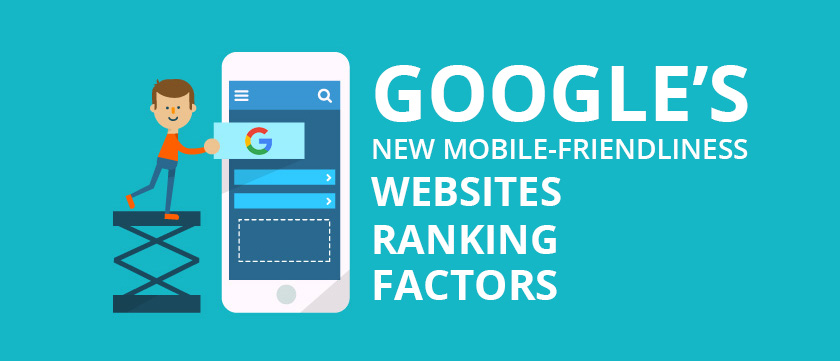What You Need To Know About Mobile Friendliness As A Google Ranking Factor - Semalt Expert

Sometimes, we get questions like how important is mobile SEO? Do I really need it? And can I do without It? In this article, we will be looking at different claims around the importance of Mobile friendliness in search rankings so you can decide for yourself whether or not it is necessary.
Mobile devices have now become the major source of internet traffic, usurping desktop PC. As the technology in smartphones continues to advance, it has become more accessible, convenient, and affordable. As a result, almost everyone has one, and with it, we can access the internet.
As the number of internet searches from mobile devices grew, Google, the leading search engine in the globe, had to reevaluate how it ranks websites by including mobile friendliness. This led to an event we call mobilegeddon.
What is Mobile Friendliness?

Mobile SEO refers to the optimization of a website for flawless viewing and interaction on a mobile devices such as smartphones and tablets. By optimizing your website for mobile devices, your content stands a better chance of ranking higher in search results.
This process will impact your organic traffic and cause your website to stand out to more internet traffic.
Mobile SEO is important for several reasons. You can find out more by clicking this link (Hyperlink to content discussing the importance of mobile SEO). In a nutshell, mobile SEO determines Google's search ranking, and it can create or destroy the experiences of your inbound traffic. An ideal website must be mobile-friendly.
Is mobile Friendliness a Google Ranking Factor?

The claim here is that websites designed to fit mobile screens enjoy a ranking boost over websites that are only optimized for desktops. Since more searches come from mobile devices, it only makes sense that this claim would be true. In every search, Google claims to deliver the best option available. In this case, a website optimized for the needs of a mobile device is most likely to offer the most pleasurable experience.
While there is still a large percentage of searches done on desktops, the best user experience can be assured by a site that is optimized for desktop and mobile devices. Before we all had cell phones that could connect to the internet, people used desktops to search Google.
When smartphones were newly created, it was common to visit a site that was optimized only for desktops. Understandably, users complained that something needed to be done so they could chat, shop, and read on their mobile phones, just as they did on desktops. The process of navigating these sites on mobile phones became quite frustrating.
As a result, Google needed a way to guarantee quality search results. Without any incentive, websites weren't in a hurry to spend more money to make their sites mobile-friendly, and Google couldn't force them to do so. It also wasn't wise to threaten these websites since it recently beat its competitor Yahoo.
Instead, Google rewarded domains that opted for a mobile-friendly design on their own. The reward was a ranking advantage which was something every website wanted. Websites quickly began adopting a mobile responsive web design, and this trend has continued till today.
Now, it is uncommon to conduct a search on your mobile phone, and the top-ranking links are websites that haven't been optimized for mobile devices.
So is this what we mean when we say mobile-friendliness is a ranking factor?
The evidence supporting Mobile-friendliness as a ranking factor
Mobilegeddon isn't a myth. It occurred on April 21, 2015, but was initially announced two months earlier. Google called it a mobile-friendly update, an addition to their algorithm designed to help users find high-quality and relevant searches faster. They no longer had to tap or zoom to read texts, items on a page were adequately spaced, and users avoided unplayable content or horizontal scrolling.
Later in 2016, Google announced that it would be strengthening the impact of mobile-friendliness as a ranking signal. The mobile-friendly update was only designed to impact search queries from mobile devices. There was no use showing a visitor a mobile-friendly page on a desktop. Over time, the value of mobile-friendliness as a ranking factor was strengthened.
That being said, it is possible for a page that's not optimized for mobile to rank in mobile search results if it's the best match to the searcher's intent. While mobile-friendliness matters, search intent is the driving force of search ranks.
Google still advises websites to focus on mobile-first indexing while optimizing for search. While it isn't mandatory, having a site that responds quickly, resizes, and keeps pictures proportionate is important for your user experience. If visitors enjoy their stay on your website, they tend to return for more which is what you want.
Our Final Verdict
Denying the value of mobile-friendliness will be a gross mistake. Websites that aren't easy to navigate are at a disadvantage. Search engines only rank them when there are no better options and visitors aren't exactly thrilled to visit the website again.
There must have been a time when you came across a website that wasn't mobile-friendly. Now imagine if you are on the go, and you have to pinch-zoom a page of the restaurant you are about to visit. You have to zoom on every section of the page to see what's on the menu and how much it costs. If you have to repeat this process every time you visit the website, how long do you think it'll take before you find an alternative restaurant?
Benefits of A Mobile-Friendly Website
Enhanced User Experience
A mobile-friendly site is easier to interact with, has legible font sizes, and is designed to fit the screen size. Benefits like these make all the difference in user experience. Whereas when a desktop site is opened on a mobile device, the visitor must make a lot of compromises to enjoy the features of your site.
Increased Conversion Rate
While it may have been ok to have a poorly designed site 10 years ago, users now expect professional and responsive sites to top every SERP ranking. Since your site is mobile-friendly, users stay longer on your pages, which gives you more opportunities to convert leads to customers.
A site that isn't optimized for mobile devices will look sketchy and unprofessional to today's internet users. Which means they leave without filling in your form, signing up, or making a purchase.
Increased Page Speed

A website that has been optimized for mobile devices loads faster and becomes interactive in less than 5 seconds. Today, users hardly wait for more than 3 seconds before leaving a loading page. Because there is another website they consider better, visitors won't spend all day waiting for your web pages to load. A mobile-friendly site loads much faster since the HTML coding is structured to make it compatible with your device.
Improved SEO
Since mobile-friendliness is a ranking factor, it does affect your ranking by search engines. When optimizing for SEO, we make a lot of changes that make your site perfect for search engine bots. Both technical and content SEO will be improved. Your URLs, linking structure, content structure, image optimization, videos, audio, etc., will all be improved.
As a result, your entire website enjoys better performance in SERPs, consumers love you, and you enjoy higher conversion rates.
Cost-effective and easier to manage
Creating a responsive web design involves the use of one URL. There was once a trend where SEO professionals had to create different URLs for different devices. Thankfully, this is no longer necessary with the use of RWDs. Without RWD, web managers had to pay to host each of the URLs, which became expensive over time. You can now have a website that shapes shifts to fit whatever device it appears on.
Conclusion
Keep this in mind while deciding whether or not your website needs to be mobile-friendly. If this is your first-time hearing about Mobile Friendliness, now you know the ins and outs of mobile SEO. To optimize your site, you can contact us at Semalt. We do this kind of thing every day. We have both the skills and experience to optimize your site and get it to the top spot on SERP.